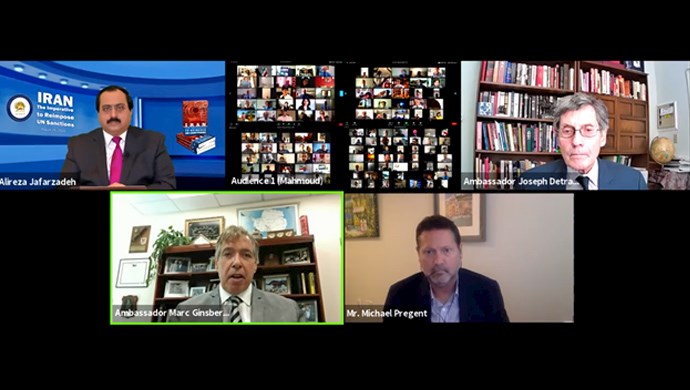Reporting by PMOI/MEK
Washington, D.C., August 26, 2020—It is imperative to restore a full sweep of United Nations sanctions on the mullahs’ ruling Iran to reign in the regime’s conglomerate of malign activities, said three American experts taking part in an online on Wednesday, August 26, hosted by the Iranian opposition coalition National Council of Resistance of Iran (NCRI). The implications of any lifting of the UN arms embargo due on October 18 and other such sanctions down the road, and what measures are needed to prevent that was also discussed.
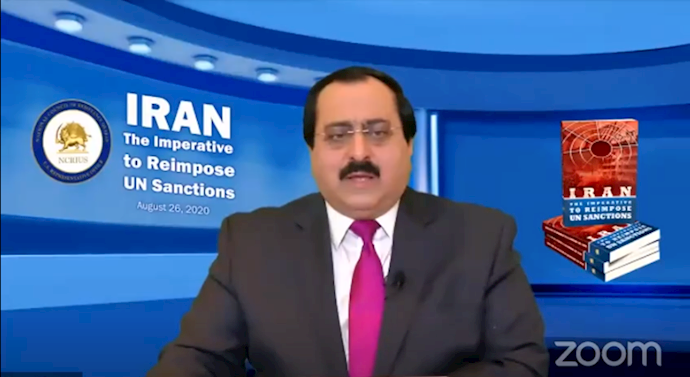
Alireza Jafarzadeh, Deputy Director of the NCRI U.S. Representative Office in Washington
The NCRI’s new report, “IRAN: The Imperative to Reimpose UN Sanctions,” contains details about the rogue behavior of the Iranian regime, in the region, their terrorism. Based on the facts on the ground, reimposing sanctions is a must, said Alireza Jafarzadeh, Deputy Director of the NCRI U.S. Representative Office in Washington.
“The book looks at the modus operandi of the regim’e s velayat-e faqih system, or the absolute rule of the clergy. In addition to the regular army, the regime has the Revolutionary Guards (IRGC) Quds force, whose sole purpose is state-sponsored terrorism. It manufactures weapons and supplies its proxies with weapons. Providing this regime with arms will be feeding the mayhem created in the region,” Jafarzadeh said.
The book provides details of the structure of the IRGC Aerospace Forces, which are tasked with producing weapons of mass destruction. This is the subset of the IRGC that is responsible for many aggressive acts, including last year’s attack on the Saudi Aramco Facility in Abqaiq.
The IRGC Quds Force also has an active role in producing and distributing weapons of terrorism, including EFPs used in Iraq and other Middle East countries. In the conference, Jafarzadeh provided details of where these weapons are produced.
In his comments, Jafarzadeh also addressed the regime’s increasing use of terrorism as part of its foreign policy.
“Terrorism is a cornerstone of the Iranian regime, for its survival. They are actively engaged in terrorism in different western countries. At a time when the Iranian regime needs Europe the most, they have stepped up their terror operations in Europe,” Jafarzadeh emphasized.
In the past week, the U.S. State Department has designated 13 Iranian regime terrorist for their role in the assassination of Dr. Kazem Rajavi, the former representative of the NCRI in Geneva and the brother of Iranian resistance leader Massoud Rajavi.
“It is encouraging that these terrorists are being designated and named by the U.S. government,” Jafarzadeh underlined.
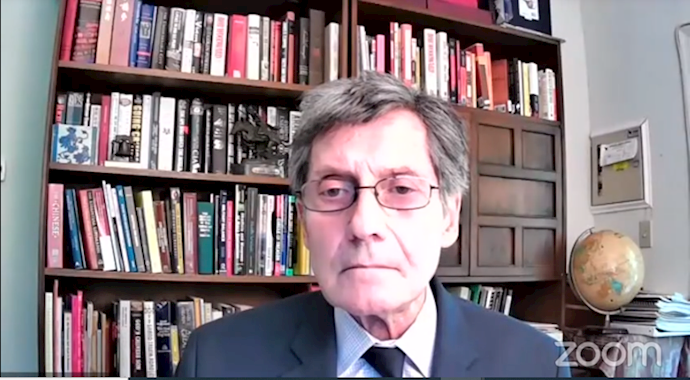
Amb. Joseph Detrani, former Special Envoy for Six Party Talks with North Korea
As we look at what’s going on in Iran right now, in Iran, one has to have significant empathy for the people going through the pandemic. Ever since we signed the JCPOA with Iran, hoping the unfrozen $50 billion would go to the people of Iran. But the theocracy continued with what we saw in the 1980s, the attacks on the Marines barracks in Beirut. That continues today in Iraq, Yemen, Lebanon and Syria.
The Quds Force is perpetrating terrorist acts. The JCPOA was meant mainly, in addition to denuclearization, to move Iran on a path of peaceful transformation. When we look at the nuclear issue, we see up until 2003, Iran was pursuing a nuclear weapons program. Monitors of the International Atomic Energy Agency (IAEA) were having problems accessing facilities. And that situation continues today.
They continue to support terrorist proxies, undermining good governance. Terrorist activities continue.
In respect to the nuclear program, the IAEA director was recently talking about lack of access to facilities. That is not right. According to the JCPOA sunset clause, Iran will be able to create sophisticated centrifuges in 2025.
Regarding the missile program, we’re talking about missiles that have reached ranges of over 1,300 miles. They’re launching missiles from underground facilities.
One has to wonder, with 18 October coming up and the lifting of the arms embargo, what will Iran do with the weapons they can purchase and sell to their proxies? These are issues that are so significant, that touch global security.
When we talk about UN Security Council Resolution 2231 and snapback, Iran must understand they cannot get away from their behavior. If these six resolutions are not enforced, if they fade away, where are we going with Iran on this?
The people of Iran are the key issue here. The theocracy does not care for the people. That’s where the focus needs to be. The international community must come together and say enough! Focus on good governance, responsible leadership and care for your own people.
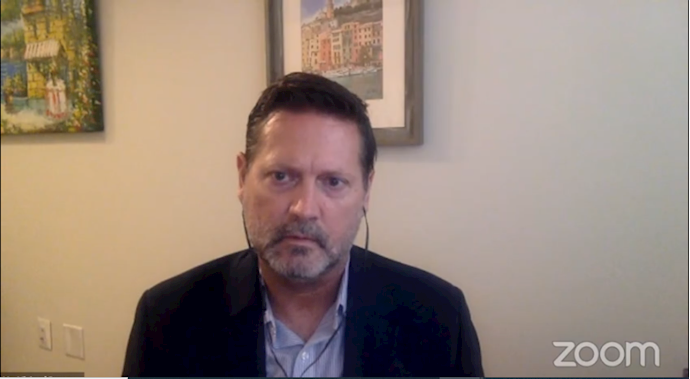
Mike Pregent, senior fellow at Hudson Institute and an expert on Middle East affairs
When there were sanctions relief, the people of Iran saw no benefit. Iran used the money to fund terrorism, to buy S300 air defense missile systems from Russia. They went after opposition forces fighting the Assad regime in Syria.
Critics say bad behavior began after the U.S. walked away from the deal. No. This behavior existed and accelerated. Iran used the economic benefits of the deal to further destabilize Iraq, Syria, and Yemen, to produce ballistic missiles.
Our allies, and Russian and China, signed on the 2015 nuclear deal to exploit Iran’s economy. It is important for the U.S. to snap back sanctions into place to protect the Iranian people from Chinese imports, from predator Chinese lenders, to prevent the intensification of Iran’s destabilizing activities.
Iran is not an economic powerhouse and China and Russia are trying to salvage that.
This regime, in its 40-year history, does not own Iran’s history, culture, what Iranians think about their future, or their lives ahead.
It is important to call out our allies and geopolitical foes who support a regime that destabilizes the region. For the first time all sects in Iraq oppose Iran’s meddling. In Lebanon, the people protest against the Iranian regime.
Snapback sanctions are a tool to test the resolve of our allies, but we have a whole host of unilateral measures we can take. We still have not put maximum pressure into full effect.
In Washington, there is no appetite for just walking back into the deal and give Iran concessions again.
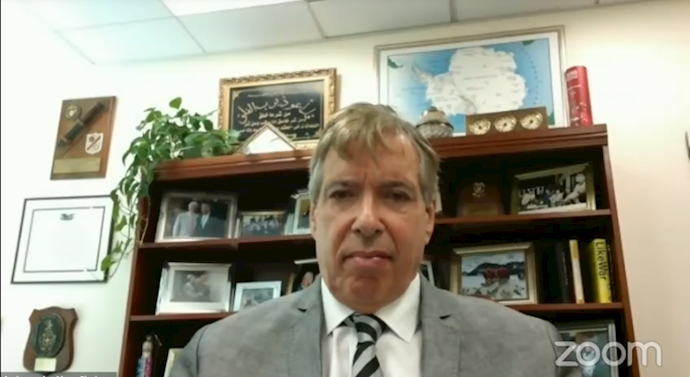
Amb. Marc Ginsberg, former U.S. envoy to Morocco
What we tend to forget is how many tens of thousands of innocent Iranians have been murdered by this regime to maintain its hold on power. I’m struck by the reality of what has taken place since President Trump decided to withdraw from the nuclear agreement.
Iran was already violating the JCPOA even before the ink was dry on the nuclear deal. It was creating a secret facility for uranium enrichment.
Tehran was banking on governments in Europe and the U.S. to provide it with the means to pursue its objective. The regime wants to cause revolution and conquest to occur in the regime. This is why the leadership has created this concept of Shiite crescent.
Iran further violated the agreement by lifting caps on heavy water and uranium enrichment.
The regime still intends the world to bend to its will. If you look at its involvement in Yemen, supporting the Houthis, its support of Hezbollah and Hamas, its pressure on the Iraqi government. All we have to do is look at the future of Lebanon and what the regime has done.
Iran could have risen from the 1979 revolution as a responsible member of the international community. It chose the other way. And now we’re debating whether we have to stay in the nuclear deal. We thought Iran would moderate its behavior as a result of sanctions relief. It was a roll of the dice, a bet. And we lost that bet. It didn’t happen.
It’s important for my fellow Democrats to acknowledge that their bet, their roll of the dice that Iran would moderate its behavior, didn't work.
Since the nuclear deal was signed, we saw case after case of terrorist attempts against Iranian opposition leaders. Regime agents were arrested on their way to bomb a gathering of the Iranian resistance in France.
Europe and the U.S. are at a crossroads. Iran continues to target our allies, our ships, our diplomats. As I look at where we are, what is in the interest of the Iranian people? Isn’t that what should drive policy toward Iran.
We can’t bet on the nuclear deal as an end-all to Iran’s bad behavior. We need a new alliance between the U.S. and Europe to support what the people need. We must support the Iranian opposition, the NCRI and Madam Maryam Rajavi. We have to protect Iran's adversaries, those who are being targeted in the region. Are we going to tell them a new deal will stop that? That is naive.
And we must target their terrorism financing. Let’s agree that our policy must not provide Iran another window to continue their nuclear program. We must end the global nightmare that this government presents to the world.
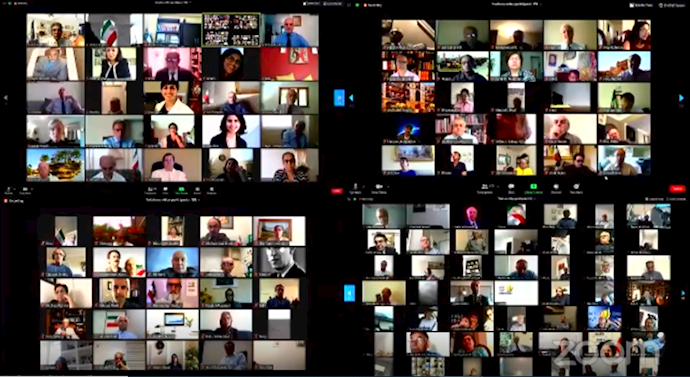
Iranian opposition coalition NCRI holds online event discussing the imperative to restore UN sanctions on the mullahs’ regime ruling Iran—August 26, 2020


